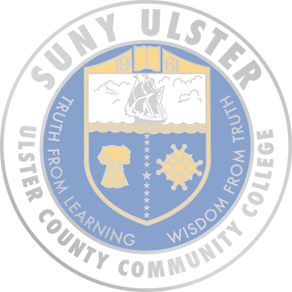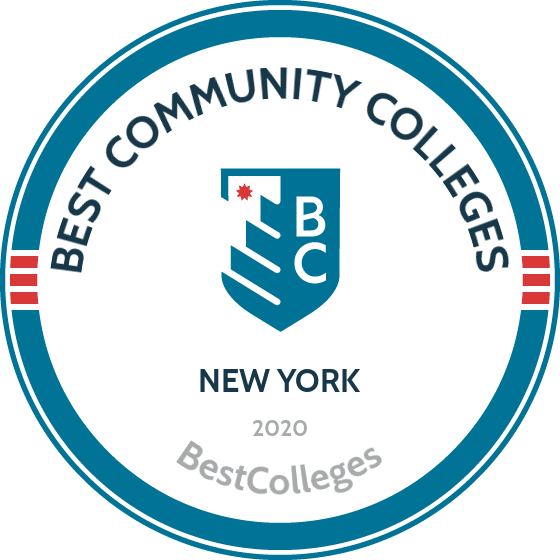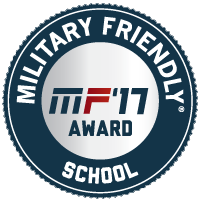Courses
220 courses found when searching within the Fall 2024 semester.
page = 4Criminal Justice System
CRJ 101
This course introduces the American criminal justice system and serves as an overview of the history, philosophy of law, contemporary structure and components of the criminal justice system, including the integration of community human service organizations responding to crime, criminal offenders, and their victims.
EssentialCommunications in CRJ
CRJ 107
This course examines criminal justice report writing as a process, with emphasis on blending information, form, and written and oral expression to develop a clear, concise, and accurate account of an incident/event. Emphasis will be placed on the development of the field notebook in investigations, recording incident details, conducting and presentation of interview/interrogations; recording of relevant facts and details for purposes of reference and accountability. The course will also examine effective conflict resolution and de-escalation techniques specific to law enforcement personnel in the field, including effective citizen interactions guided by trauma-informed interviewing and the use of emotional intelligence and body language interpretation techniques.
Corrections & Comm Supervision
CRJ 121
This course will introduce students to the history of corrections, incarceration, punishment and criminal justice community supervision. Describe the operations of correctional facilities, and discuss the relationship of corrections and correctional institutions to the criminal justice system
Criminal Law
CRJ 201
An overview of the FBI Index Crimes and murder, robbery, rape, burglary, assault, arson, and larceny is offered in this course, which emphasizes the elements of crimes and distinctions within offense categories, particularly criminal intent and the defenses to criminal conduct. Prerequisite: CRJ 101
Policing in America
CRJ 214
This course is designed to familiarize students with the history, organization, responsibilities, and challenges of policing in the United States. Policing is explored from multiple perspectives including: An examination of police officer-citizen interaction, the critical relationship between the community and its protectors policing in a free and democratic society, and system relationships with other justice and human service organizations. This course will focus on the examination of issues and strategies that will serve to bridge the gap between the community and the police.
Constit/Criminal Procedures
CRJ 215
A study of the constitutional implications of criminal procedure as applied to arrest, force, search and seizure with particular emphasis on the 4th, 5th, 6th, and the 14th Amendments to the United States Constitution as well as the criminal procedural law of the State of New York. This course provides practical knowledge and guidelines for criminal justice professionals working in and for our communities as well as individuals seeking to become better informed of their rights and protections within the framework of our constitutional democracy.
Criminal &Crime Scene Invest
CRJ 218
Students will gain an understanding of the primary aspects of the investigative process including approaches utilized to investigate various categories of crime. Students will learn the importance and methods of legally developing information and identifying, collecting, and submitting evidence following established best practices of crime scene processing and management.
Understanding Crime/Crim Behav
CRJ 230
This interdisciplinary course focuses on the scientific study of criminal situations and criminal behavior. The course will cover the importance of measuring crime and review major sources that collect crime information. It will also examine the major criminological theories from biology, economics, psychology, and sociology and focus especially on neo-classical approaches that seek to manipulate environments to reduce and/or prevent criminal behavior. The course will explore historical, political, and empirical trends leading to theory development in the social sciences. Prerequisite: CRJ 101, ENG 101, and SOC 101 or HUS 103
Contemp Issues-Crim Justice
CRJ 231
This course will examine the justice process and the general operations of the criminal justice system. Concepts of crime and deviance, as well as individual rights and discrimination in a democratic society will also be reviewed and critiqued against the backdrop of contemporary issues. The law enforcement, judicial, juvenile justice, and corrections subsystems will be particularly explored, and a number of reform proposals presented and considered. Students will be expected to integrate material in their written assignments that they have learned throughout their college experience.
Ethics in Criminal Justice
CRJ 233
This course introduces students to the fundamentals of philosophy as a major discipline within the field of humanities and evaluates various conventions and methods of applied ethical theory with an area-specific examination of ethical dilemmas pertaining to the professions of the criminal justice system. Students will focus on comprehensive issues facing law enforcement, legal practice, sentencing, corrections, research, and crime control policy. Pre and/or Co-requisite: ENG 101
Critical Reading and Thinking
CRT 101
This is a four credit course designed to provide students with essential study, reading and writing skills to enhance their academic college experiences. Students will receive instruction and practice in a wide variety of study, test/note taking, reading, and writing strategies. An emphasis will be placed on critical reading with a focus on higher-level comprehension and vocabulary skills needed in a variety of academic disciplines. An additional lab component will augment the course and provide individualized practice in specific skills. Prerequisite: OTP 070 with a grade of C or higher or by reading placement score.
Cross Registered Course
CRX 1XX
Web Application Development I
CSC 131
This course explores the web development processes and tools used to support the creation of websites and web applications. Students explore HTML, CSS and JavaScript and use them to create websites and web applications hosted by a web server. Web application development frameworks will also be introduced. Through labs and projects students create both static and dynamic web content in the context of producing a professional quality web site. The course focuses on the underlying tools of web development. Prerequisite: familiarity with text file editing as determined by the instructor.
Computer Science I
CSC 150
This course covers the fundamentals of computer problem solving and programming. Topics includes: program development process, differences between the object-oriented, structured, and functional programming methodologies, phases of language translation (compiling, interpreting, linking, executing), and error conditions associated with each phase, primitive data types, memory representation, variables, expressions, assignment, fundamental programming constructs (sequence, selection, iteration), algorithms for solving simple problems, tracing execution, subprograms/functions/methods, parameter passing, secure coding techniques (criteria for selections of a specific type and use, input data validation), and professional behavior in response to ethical issues inherent in computing. The Java programming language is used. Corequisite: MAT 115 or equivalent or permission of the instructor.
Comp Sci III/Data Structures
CSC 201
This course covers the fundamentals of data structures and software modeling. Topics include: modern IDE for software development and code version management systems, design and development of reusable software, software modeling (class diagram, use case, CRC card), introduction to analysis of algorithms (order notation), abstract properties, implementation and use of stacks, queues, linked lists, and binary trees, binary search trees, recursion, and efficiency of recursive solutions, range of search (sequential, binary), select (min,max, median), and sort algorithms (quicksort, merge sort, heap sort) and their time and space efficiencies, software quality assurance (pre and post conditions, program testing), team development of software applications, and professional responsibilities and liabilities associated with software development. Prerequisite: CSC 180 with a grade of C- or better or permission of the instructor.
Android App Development
CSC 210
Android is now the most widely used operating system among smart phones, tablets, and PCs. This course prepares the student to be a professional Android software developer. It is based on an app-driven approach. Mobile system concepts specific to Android are presented in the context of complete working Android apps, rather than using sample code snippets. The student is expected to construct these applications and test them in a simulated mobile device environment. Concepts and techniques introduced in this course include: · Fundamentals of the Android Studio development environment · Concepts and structure of the Android application environment · Graphical user interface conventions and graphical concepts · Remote access to information using industry standard protocols · Access to relational data stored on the Android device (via SQLite or equivalent) · Animation and simple game development Corerequisite: CSC 180 or permission of the instructor.
Computer Game Design II
CSC 225
This course expands on the fundamental computer game concepts and techniques introduced in CSC 220, Computer Game Design I. It advances use of the C# programming language to animate and handle interactions with the game environment, game elements and the players. Special emphasis will be given to insuring good game performance. Physical principles of mechanics and lighting will be enlarged to include more natural movement, interaction among objects such as wind and lighting with shading and textures. Computer programming scripts will interact in advanced ways with objects composed of curves, and coverings such as clothed human actors in the game. Prerequisite: CSC 220 or permission of the instructor.
Comp Architecture & Organ
CSC 250
This course covers fundamentals of computer architecture and organization. Topics include: classical von Neumann machine, major functional units, primary memory, representation of numerical (integer and floating point) and non-numerical data, CPU architecture, instruction encoding, fetch-decode-execute cycle, instruction formats, addressing modes, symbolic assembler, assembly language programming, handling of subprogram calls at assembly level, mapping between high level language patterns and assembly/machine language, interrupts and I/O operations, virtual memory management, and data access from a magnetic disk. Prerequisite: CSC 180 with a grade of C- or better or permission of the instructor.
Intro to Macroeconomics
ECO 101
Students are introduced to national income analysis. Topics include money, banking and monetary policy, national income determination and fiscal policy, macroeconomic policy, the problems of inflation and unemployment, and economic growth. Prerequisite: MAT 100 or high school Mathematics Course II or by advisement.
Intro to Microeconomics
ECO 102
The laws of markets are surveyed in this course. Topics include the law of supply and demand, the economics of the firm, competition, monopoly, and economic regulation. Prerequisite: MAT 100 or high school Mathematics Course II or by advisement.
page = 4




